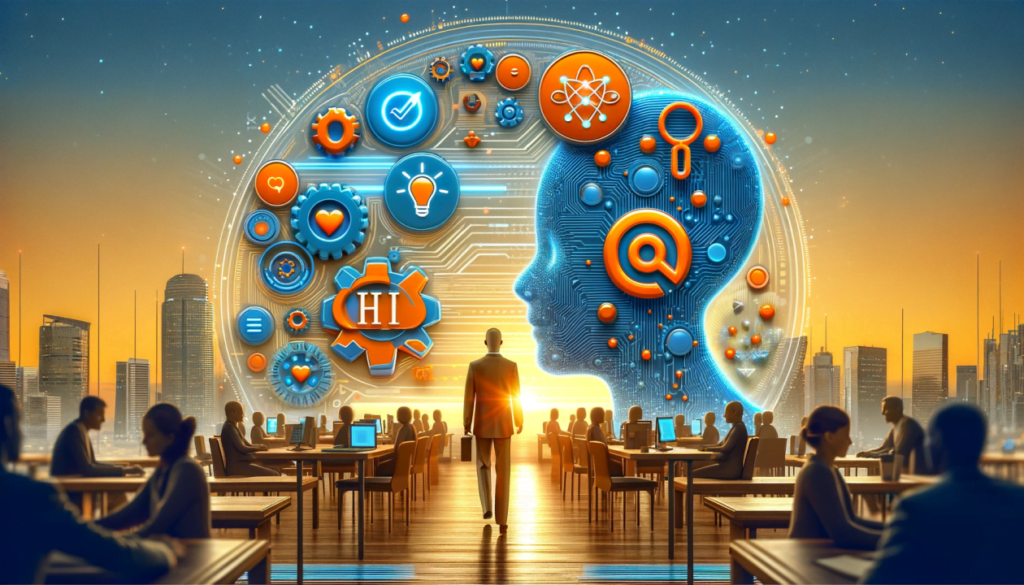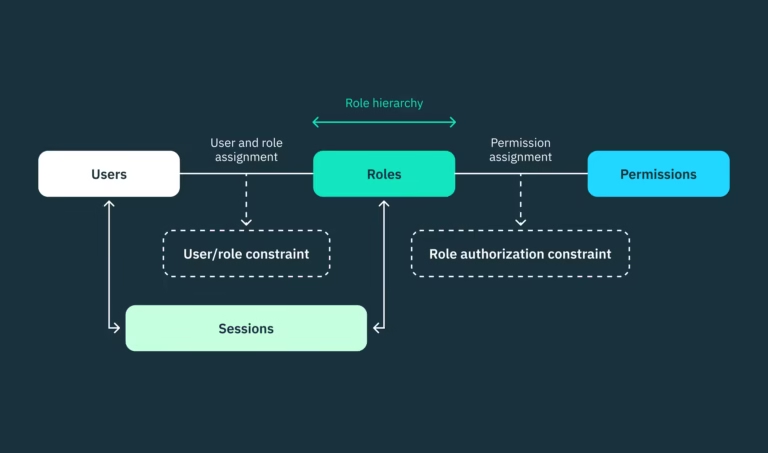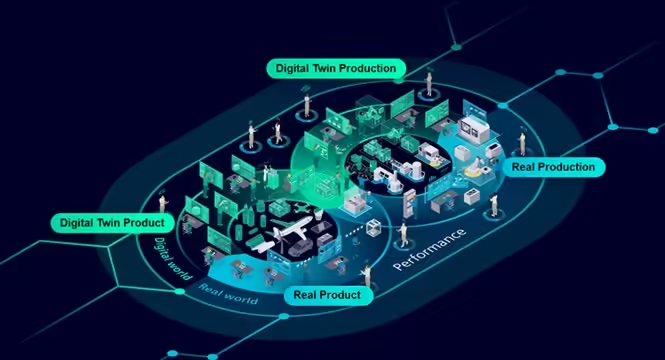
Image Credit- unsplash.com
Introduction to AI in Business
Artificial intelligence (AI) refers to the simulation of human intelligence in machines that are programmed to think and learn like humans. This technology encompasses various branches, including machine learning, deep learning, and natural language processing. Machine learning involves algorithms that enable systems to learn from data and improve over time without being explicitly programmed. Deep learning, a subset of machine learning, uses neural networks with many layers to analyze complex patterns in large datasets. Natural language processing allows machines to understand and respond to human language, facilitating interactions between humans and computers.
The adoption of AI technologies in business has been rapidly increasing, transforming industries and driving innovation. Companies across various sectors are leveraging AI to streamline operations, enhance decision-making processes, and provide personalized customer experiences. The proliferation of AI in industries such as healthcare, finance, retail, and manufacturing highlights its versatility and potential to revolutionize traditional business practices.
Businesses are investing in AI for several compelling reasons. Firstly, AI enhances efficiency by automating routine tasks, allowing employees to focus on more strategic activities. This leads to significant time and cost savings. Secondly, AI improves accuracy by reducing human error in processes such as data analysis and forecasting. Moreover, AI provides actionable insights through advanced data analytics, enabling businesses to make informed decisions and gain a competitive edge. The ability to analyze vast amounts of data in real-time helps companies stay ahead of market trends and customer preferences.
In sum, AI is not just a technological advancement; it is a transformative force that is reshaping the business landscape. As AI continues to evolve, its integration into business practices will undoubtedly drive innovation and create new opportunities for growth and efficiency.
Historical Context and Evolution of AI in Business
The journey of artificial intelligence (AI) in business began several decades ago, tracing its origins back to the mid-20th century. Early AI applications were primarily experimental, rooted in academic research rather than practical business use. The initial focus was on creating algorithms that could mimic basic human problem-solving and decision-making processes. One of the earliest milestones in AI was the development of the Logic Theorist in 1956, considered the first AI program, which aimed to prove mathematical theorems.
As the decades progressed, AI gradually transitioned from theoretical constructs to practical applications, albeit limited by the technological constraints of the times. The 1980s witnessed the advent of expert systems, which were among the first AI applications to see widespread use in business. These systems utilized rule-based algorithms to emulate the decision-making abilities of human experts in specific domains, such as medical diagnosis and financial trading. However, their rigidity and high development costs limited their scalability and adaptability.
Significant breakthroughs in AI occurred in the late 1990s and early 2000s, driven by advancements in computational power, data storage, and algorithmic innovation. The introduction of machine learning, particularly supervised learning techniques, marked a pivotal shift in AI’s business applications. Companies began harnessing vast amounts of data to train AI models, enabling more accurate predictions and improved decision-making processes. Notable milestones include the development of IBM’s Deep Blue, which defeated world chess champion Garry Kasparov in 1997, showcasing AI’s potential in complex problem-solving.
Today, AI has become an integral part of business operations across industries, driven by the proliferation of big data and advancements in neural networks. Innovations like deep learning and natural language processing have made AI more accessible and effective. Modern AI applications range from customer service chatbots and predictive analytics to autonomous vehicles and personalized marketing. The contrast between AI in business a few decades ago and today is stark; what was once a niche technology with limited applications has now become a transformative force driving innovation and efficiency across various sectors.
Key Industries Transformed by AI

Artificial Intelligence (AI) has profoundly reshaped various industries, driving innovation and enhancing efficiency in unprecedented ways. In healthcare, AI has revolutionized diagnostics and treatment plans. For example, IBM’s Watson Health employs AI to analyze vast amounts of medical data, providing doctors with actionable insights that improve patient outcomes. In radiology, AI-driven image recognition systems can detect anomalies with higher accuracy than human radiologists, thereby expediting diagnosis and treatment.
The finance sector has also significantly benefited from AI’s transformative capabilities. Algorithms now handle complex trading strategies and fraud detection with remarkable precision. JPMorgan Chase’s COiN software, for instance, uses AI to review legal documents and extract critical data points, reducing the time and cost associated with human review. Similarly, AI-driven robo-advisors are democratizing investment, offering personalized financial advice to a broader audience.
In retail, AI is enhancing customer experiences and optimizing operations. Amazon’s recommendation algorithms, powered by AI, analyze customer behavior to suggest products, thereby increasing sales and customer satisfaction. Meanwhile, AI-driven inventory management systems help retailers maintain optimal stock levels, reducing waste and improving supply chain efficiency.
The manufacturing industry is witnessing a paradigm shift with the integration of AI. Predictive maintenance, powered by AI, allows companies to foresee equipment failures before they occur, minimizing downtime and reducing maintenance costs. General Electric’s Predix platform is a prime example, using AI to monitor industrial equipment and predict potential issues, thereby enhancing operational efficiency.
Logistics and supply chain management have also seen significant improvements due to AI. Companies like DHL use AI to optimize delivery routes, resulting in faster shipments and reduced fuel consumption. AI-driven demand forecasting tools help logistics firms anticipate market needs, enabling more efficient resource allocation and inventory management.
While AI offers considerable benefits, each industry faces unique challenges. In healthcare, data privacy concerns and the need for regulatory compliance can impede AI adoption. In finance, the complexity of AI models may lead to ethical and transparency issues. Despite these challenges, the transformative power of AI in driving innovation and efficiency across industries is undeniable.
AI-Driven Business Processes and Operations
The integration of Artificial Intelligence (AI) into core business processes and operations is revolutionizing the way enterprises function. AI-driven predictive analytics are at the forefront, offering businesses the ability to forecast trends, anticipate customer needs, and streamline decision-making processes. By analyzing vast amounts of data, AI tools provide valuable insights that help companies optimize their strategies and stay ahead of market shifts.
Customer service is another area where AI is making a significant impact. Automation through AI-powered chatbots and virtual assistants is enhancing customer experiences by providing instant, accurate responses to inquiries. These tools not only improve efficiency by handling a high volume of interactions simultaneously but also free up human agents to tackle more complex issues, thereby elevating the overall quality of service.
In the realm of supply chain management, AI is driving innovation by optimizing logistics and inventory management. AI algorithms can predict demand fluctuations, suggest optimal stock levels, and identify the most efficient routes for transportation. This results in reduced costs, minimized waste, and improved delivery times, all of which contribute to a more resilient and responsive supply chain.
Personalized marketing is another transformative application of AI in business. By leveraging machine learning algorithms, companies can tailor their marketing efforts to individual customer preferences and behaviors. This level of personalization not only enhances customer satisfaction but also boosts conversion rates and loyalty. AI tools analyze customer data to craft targeted campaigns, ensuring that the right message reaches the right audience at the right time.
Furthermore, businesses are utilizing AI for strategic planning and resource management. AI-driven platforms can assess various scenarios and predict outcomes, enabling companies to make informed decisions about resource allocation, investment opportunities, and long-term planning. This strategic use of AI ensures that businesses remain agile and competitive in an ever-evolving market landscape.
Overall, the integration of AI into business processes and operations is driving unprecedented levels of efficiency, innovation, and customer satisfaction. By embracing AI technologies, companies are not only transforming their operations but also paving the way for future growth and success.
AI and Innovation: New Business Models and Opportunities
Artificial intelligence (AI) is at the forefront of transforming industries and driving innovation, fostering the development of new business models and creating unprecedented opportunities. The rapid integration of AI technologies has given rise to numerous AI-driven startups, revolutionizing traditional business practices. These startups leverage AI to streamline operations, enhance decision-making processes, and offer personalized customer experiences.
One significant area where AI is making an impact is in product development. Companies are utilizing machine learning algorithms to analyze vast datasets, identifying consumer preferences and market trends. This data-driven approach allows businesses to design products that better meet customer needs and reduce the time-to-market cycle. For instance, AI-driven predictive analytics can forecast product demand, enabling manufacturers to optimize inventory management and reduce waste.
Market analysis is another domain where AI is proving invaluable. By harnessing natural language processing (NLP) and advanced data analytics, businesses can gain deeper insights into consumer behavior, competitive landscapes, and emerging market opportunities. AI-powered tools can process and interpret large volumes of unstructured data from social media, online reviews, and other digital sources, providing actionable intelligence that informs strategic decisions.
AI is also enabling new revenue streams and business opportunities. For example, companies in the financial sector are deploying AI to develop sophisticated trading algorithms, fraud detection systems, and personalized financial advice services. Similarly, AI-driven chatbots and virtual assistants are transforming customer service, offering 24/7 support and enhancing customer satisfaction while reducing operational costs.
Several companies have successfully harnessed AI for innovation. For instance, Netflix uses AI algorithms to recommend personalized content to its users, significantly improving user engagement and retention. Another example is Tesla, which employs AI in its autonomous driving technology, pushing the boundaries of innovation in the automotive industry.
In conclusion, AI is not only transforming industries but also driving innovation by enabling the creation of new business models and opportunities. As AI technologies continue to evolve, businesses that embrace and integrate these advancements are likely to stay ahead of the curve, reaping the benefits of enhanced efficiency, customer satisfaction, and competitive advantage.
Challenges and Ethical Considerations in AI Adoption
As businesses increasingly turn to artificial intelligence to drive innovation and transform industries, they encounter a range of challenges and ethical considerations. One of the foremost concerns is data privacy. AI systems rely on vast amounts of data, often personal and sensitive, to function effectively. Ensuring that this data is collected, stored, and processed in a way that respects individuals’ privacy rights is crucial. Businesses must implement robust data protection measures and comply with relevant regulations, such as the General Data Protection Regulation (GDPR), to safeguard user information.
Security is another significant challenge. AI systems can be vulnerable to cyber-attacks, which could lead to data breaches or manipulation of AI algorithms. Companies must invest in advanced security protocols and regular risk assessments to protect their AI infrastructure from malicious activities.
Bias in AI algorithms is a critical ethical issue. AI systems can inadvertently perpetuate existing biases present in the training data, leading to unfair and discriminatory outcomes. For instance, biased hiring algorithms may disadvantage certain demographic groups. To mitigate this, businesses should prioritize transparency in AI development and employ diverse teams to oversee the creation and deployment of AI models. Regular audits and ongoing monitoring can help identify and rectify biases.
The societal impacts of widespread AI use are profound. Job displacement is a significant concern, as AI and automation can render certain roles obsolete. This shift could exacerbate economic inequality if not managed carefully. Businesses have a responsibility to support affected employees through retraining programs and opportunities for transitioning to new roles within the organization. Collaboration with educational institutions and government bodies can facilitate this process.
Ethical AI practices are paramount. Companies must adhere to principles of fairness, accountability, and transparency. Developing and implementing ethical guidelines and fostering a culture of ethical AI use are essential steps. Furthermore, regulatory frameworks play a crucial role in guiding responsible AI adoption. Policymakers must establish clear regulations that address ethical concerns while fostering innovation.
In navigating these challenges, businesses can leverage best practices and industry standards to adopt AI responsibly. Engaging with stakeholders, including customers, employees, and regulatory bodies, ensures that AI adoption aligns with societal values and ethical principles.
The Future of AI in Business
The future of AI in business promises to be a landscape of unprecedented transformation and innovation. As AI-driven automation continues to evolve, businesses are expected to witness significant enhancements in efficiency and productivity. Automation will not only streamline routine tasks but also enable more sophisticated processes, leading to reduced operational costs and improved accuracy. Emerging trends indicate that smart assistants, equipped with advanced natural language processing capabilities, will become integral to customer service and internal operations.
Advanced analytics powered by AI will revolutionize decision-making processes. By harnessing vast amounts of data, companies can gain deeper insights into market trends, consumer behavior, and operational efficiencies. This predictive capability will empower businesses to make informed decisions swiftly, thereby staying ahead of the competition. Moreover, industries such as healthcare, finance, and manufacturing are likely to experience profound impacts, with AI-driven solutions enhancing diagnostics, fraud detection, and production processes, respectively.
The long-term impact of AI on the global economy cannot be understated. It is projected that AI will contribute trillions of dollars to the global GDP, fostering economic growth and creating new job opportunities in tech-driven sectors. However, this transformation comes with its set of challenges. As AI advances, there will be a substantial shift in the job market, necessitating a workforce skilled in AI and related technologies. Businesses will need to invest in continuous learning and development programs to equip their employees with the necessary skills.
Experts predict that ethical considerations and regulatory frameworks will play a pivotal role in shaping the future of AI in business. Issues such as data privacy, algorithmic bias, and transparency will need to be addressed to build trust and ensure the responsible use of AI. Companies that proactively adopt ethical AI practices will likely gain a competitive edge, fostering customer loyalty and stakeholder confidence.
To prepare for the future of AI, businesses should focus on integrating AI into their strategic planning, investing in AI research and development, and fostering a culture of innovation. By doing so, they will be well-positioned to navigate the challenges and capitalize on the opportunities presented by AI, driving sustained growth and transformation in their respective industries.
Conclusion: Embracing AI for Business Success
The integration of artificial intelligence (AI) is catalyzing profound changes across various industries, demonstrating its transformative power and capacity for driving innovation. Throughout this discussion, we’ve delved into how AI is revolutionizing sectors such as healthcare, finance, retail, and manufacturing, among others. From enhancing operational efficiency to enabling personalized customer experiences, AI is reshaping traditional business models and creating new avenues for growth.
Strategic adoption of AI is paramount for businesses aiming to stay ahead in an increasingly competitive landscape. Embracing AI technologies requires a comprehensive understanding of the latest developments and a commitment to continuous learning and adaptation. Companies must recognize the potential of AI not just as a tool for automation, but as a cornerstone for innovation and strategic decision-making.
However, leveraging AI for business growth comes with its set of ethical considerations. It is crucial for businesses to balance the benefits of AI with responsible practices, ensuring transparency, fairness, and accountability in their AI applications. By addressing these ethical concerns, companies can build trust with their stakeholders and foster a positive impact on society.
In conclusion, the rise of AI in business underscores a paradigm shift towards more intelligent and efficient operations. As industries continue to evolve, the role of AI in driving innovation and transforming industries will only become more pronounced. By staying informed and strategically embracing AI, businesses can not only remain competitive but also achieve long-term success. The future of business lies in a harmonious blend of human ingenuity and artificial intelligence, where ethical considerations guide the path towards sustainable growth and innovation.










Thank you for highlighting this important shift! It’s inspiring to see how consumer demand for ethical business practices is pushing companies to prioritize sustainability. This change not only benefits the environment but also fosters trust and loyalty between brands and their customers. It’s a win-win for everyone involved!
Absolutely! The rapid advancements in technology are transforming industries in ways we’ve never seen before. As automation, AI, cloud computing, and data analytics become integral to business operations, it’s crucial for employees to continuously upskill and embrace these new tools. Adaptability is key to staying competitive and thriving in this fast-paced environment.